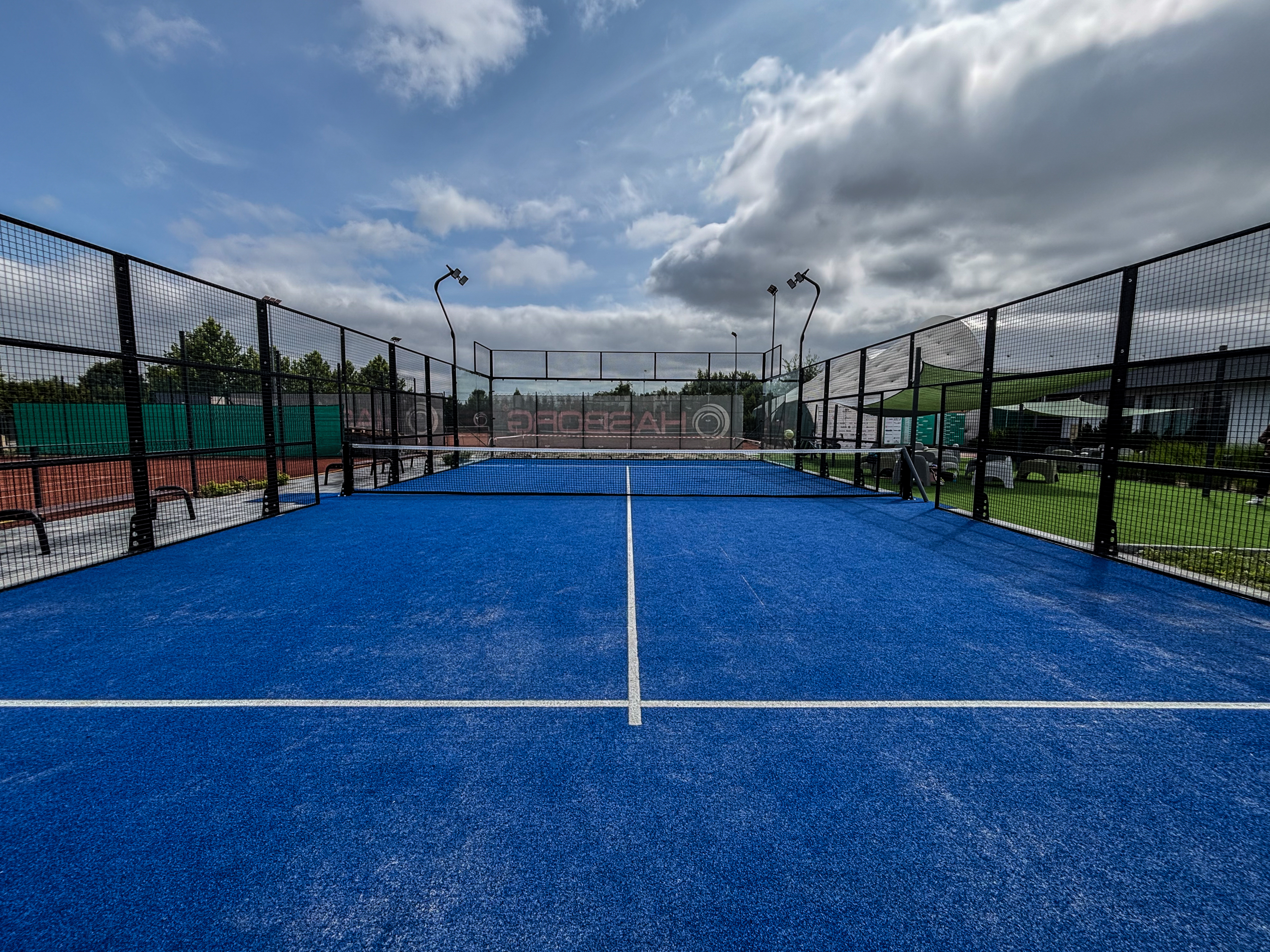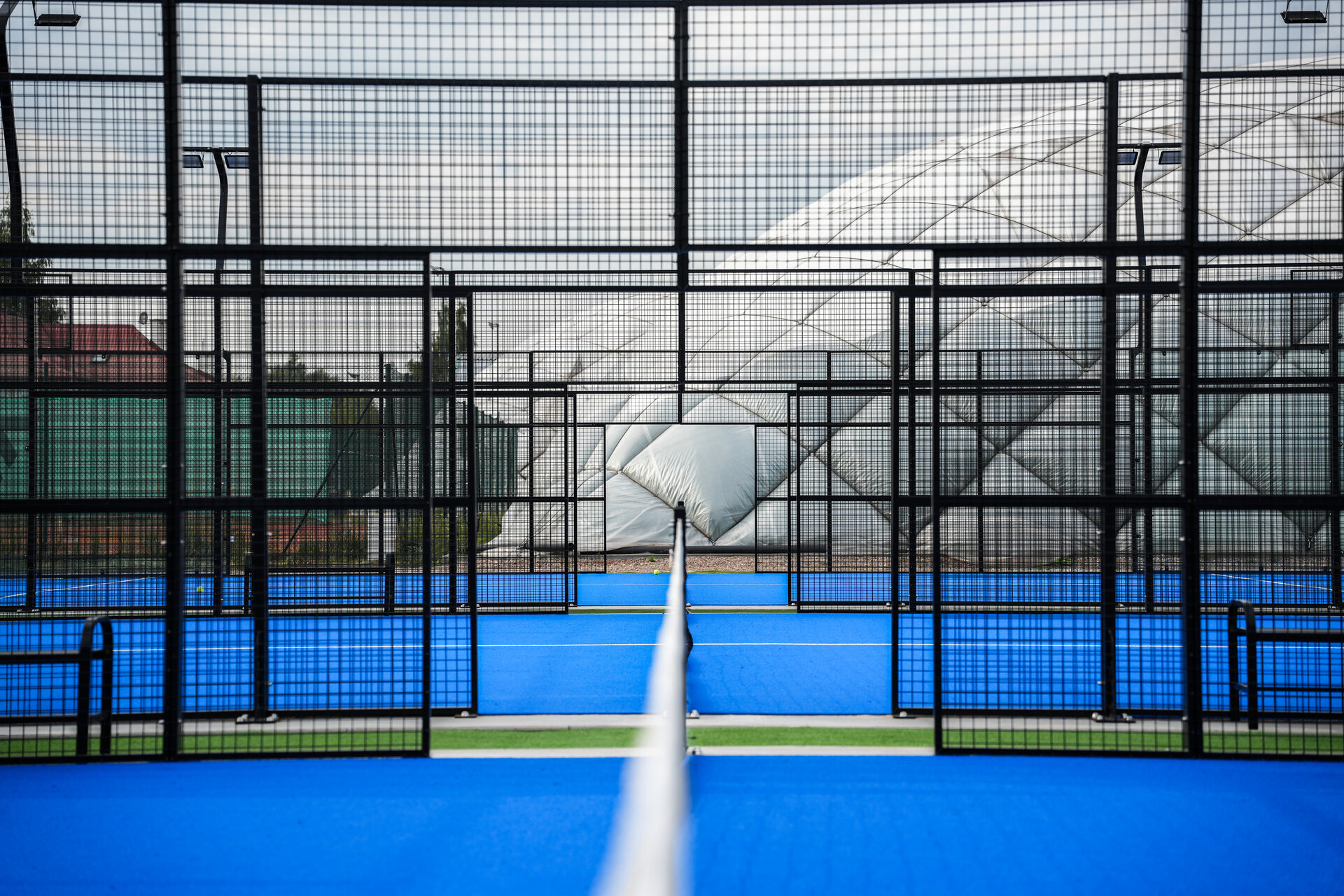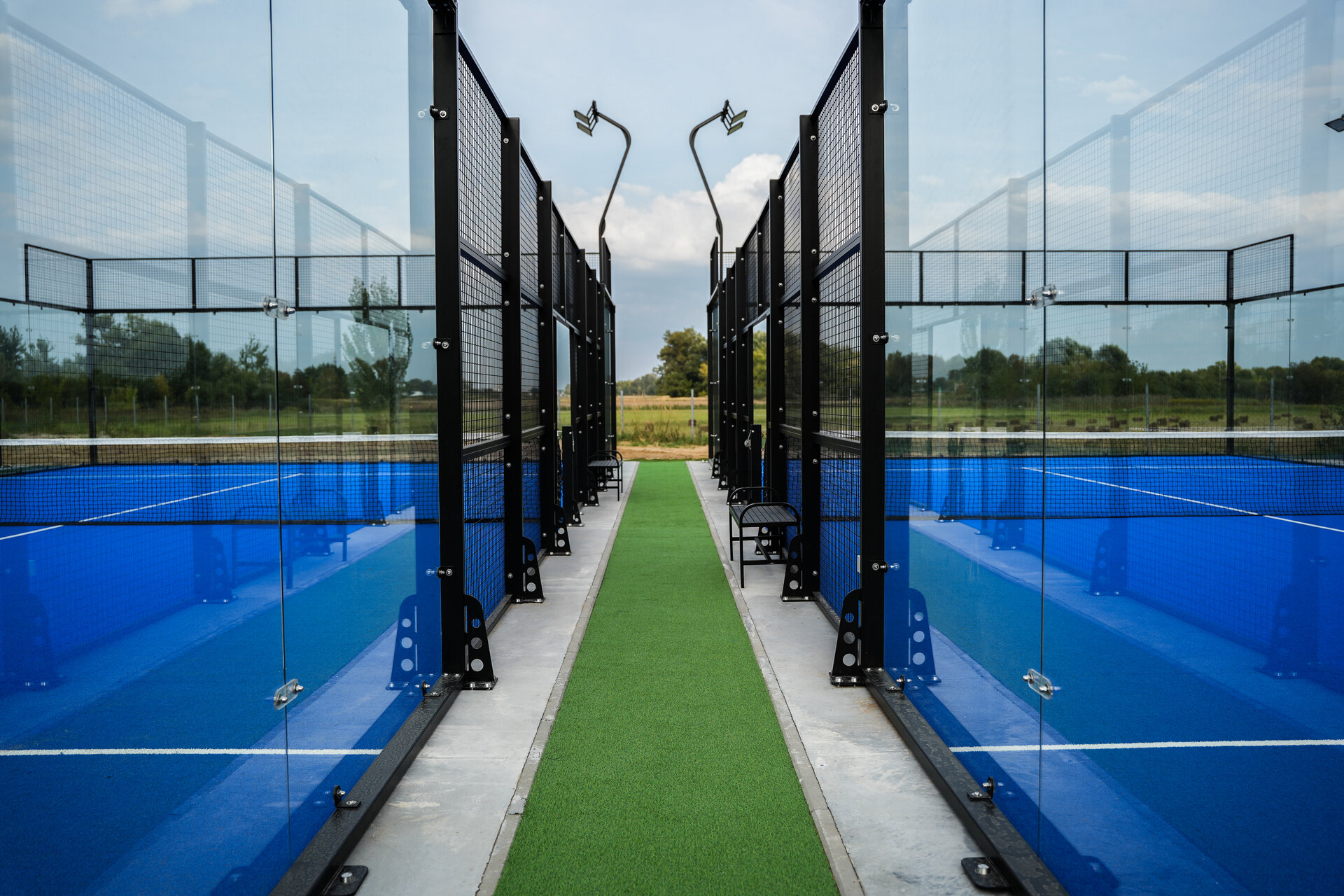Where to build padel courts?
Padel is not just a sport—it is a phenomenon that is winning the hearts of players and the minds of entrepreneurs. More and more people see it not only as entertainment, but also as an opportunity for a stable, profitable business. But before you take your first booking and hear the whistling sound of the ball bouncing off the glass wall, you need to answer one key question: where is the best place to build padel courts? There are several possibilities – each with its own advantages and potential that are worth considering.
Courts in a warehouse are the most common choice for a start – especially in larger cities, where the availability of ready-made infrastructure allows for a quick entry into the market. Converting an industrial facility into a sports center is a proven model. High ceilings, adequate space, and often already existing technical facilities are huge advantages. The downside is the aesthetics – the raw, industrial character of the hall requires additional investment to create a friendly, club-like interior.
Outdoor courts, on the other hand, are a great solution for smaller towns, residential areas, or recreational areas. Their biggest advantage is lower investment costs and a quick construction process – sometimes it only takes a few weeks to start operating. The downside, of course, is seasonality – without a roof, padel is mainly played from spring to fall, and the weather can be unpredictable. Nevertheless, a well-located facility can generate a lot of traffic, especially during the summer holidays.
Having your own wooden arched hall is a solution that is becoming increasingly popular – and no wonder. It combines functionality, aesthetics, and long-term potential. The wooden structure creates a warm, natural atmosphere that players love. Natural light, pleasant acoustics, and a modern look make a club with courts in such a hall stand out on the market. Importantly, this type of facility can be easily expanded by adding more courts, a café, or a relaxation area. Having your own hall also means greater control over the brand and the player's experience – from their first padel step to regular play.
Location, or where padel is growing fastest
Regardless of whether we build courts indoors, outdoors, or in a modern wooden facility, location is key. Specifically, how close we are to potential players. In large cities such as Warsaw, Krakow, or Wrocław, it pays to invest in indoor facilities—the competition is greater, but so is the demand. It is important that the court is located in a well-connected part of the city, with access to public transport, expressways, and a large parking lot. Areas near shopping centers, office zones, or residential areas with modern infrastructure are ideal.
In medium-sized and small cities (50,000–150,000 inhabitants), padel is just taking off – this is a great time to enter the market with your first or second facility. Here, it is worth considering cheaper land for arched halls or outdoor courts in sports and recreation areas. Proximity to schools, tennis clubs, and sports fields are factors that increase the chances of success.Most importantly, regardless of the city, access and parking are fundamental. Players should not have to think about where to leave their car or how to get there by public transport. The fewer barriers, the higher the attendance.
Construction conditions – what you need to know before breaking ground
A padel court is not only a space for playing, but also a potential center for local physical activity. Cooperation with physical therapists, orthopedists, or personal trainers can bring mutual benefits. On the one hand, players have access to specialists, and on the other, experts gain new customers. You can consider subscriptions with consultations, discounts on examinations, or even joint promotional campaigns. Such partnerships build added value for users and make the sports facility more than just a 'place with courts,' but a comprehensive service point for an active lifestyle.
For outdoor courts, it is usually sufficient to submit a building permit application, provided that the facility does not exceed 35 m² of built-up area (e.g., a roof or a container for back-up facilities). The court itself, as sports infrastructure on a plot of land designated for sports, recreation, or services, does not require a change in the local zoning plan. The problem arises if the plot has agricultural or residential status – in which case a change in land use may be necessary
The adaptation of a warehouse usually requires notification of a change in use – from industrial to service (sports and recreation). In some cases, if a major reconstruction is planned (e.g., a change in the layout of walls or installations), it will be necessary to obtain a building permit. It is also important to comply with safety standards and adapt the facility to fire safety and sanitary regulations.
The construction of a wooden arched hall is an investment from scratch, so in most cases it requires a building permit. The fact that these types of structures are lightweight and often prefabricated, which significantly speeds up the construction process, works in your favor. However, you should check the local zoning plan in advance and make sure that the plot allows for service or sports development. It is also worth investing in a design prepared by an office familiar with the specifics of padel facilities – this will save time and problems in the later stages.
The court is just the beginning
Whether you opt for a warehouse, a wooden structure with soul, or a seasonal outdoor facility, padel offers enormous possibilities. Each of these solutions can be an effective path to success, provided you have a well-thought-out location, a good plan, and knowledge of the legal requirements.
There is no one perfect path – there are different scenarios that lead to the same goal: starting a profitable sports business in one of the fastest-growing disciplines in Poland. Choose the one that best suits your resources, ambitions, and market – and the passion of players and installers will do the rest.




